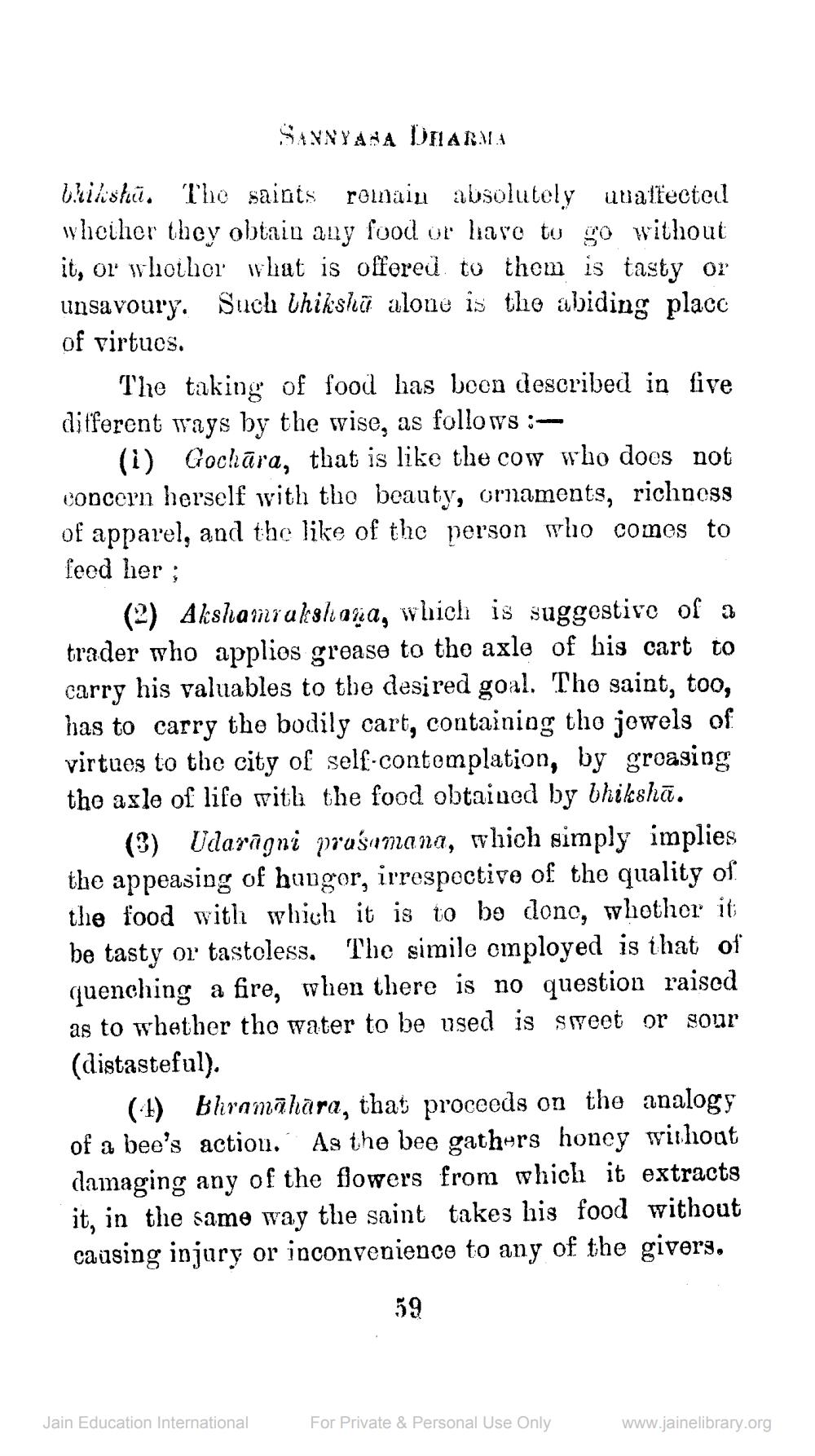________________
SAYNYADA DHARMA
Ulikstū. The saints remain absolutely quaffected wheiher they obtain any food or have to go without it, or whoihor what is offered to them is tasty or unsavoury. Such Thikshū alone is the abiding place of virtues.
The taking of food has been described in five different ways by the wise, as follows :
(i) Gochāra, that is like the cow who does not concern herself with tho beauty, ornaments, richness of apparel, and the like of the person who comes to feed her ;
(2) Akshamrakshana, which is suggestive of a trader who applios grease to the axle of his cart to carry his valuables to the desired goal. The saint, too, has to carry the bodily cart, containing tho jowels of virtues to the city of self-contemplation, by groasing the axle of life with the food obtained by bhikshā.
(3) Udaragni prasumana, which simply implies the appeasing of huvgor, irrespective of the quality of the food with which it is to be done, whether it be tasty or tasteless. The simile employed is that of quenching a fire, when there is no question raised as to whether the water to be used is sweet or sour (distasteful).
(1) Bhramahāra, that proceeds on the analogy of a bee's action. As the bee gathörs honey without damaging any of the flowers from which it extracts it, in the same way the saint takes his food without causing injury or inconvenience to any of the givers.
59
Jain Education International
For Private & Personal Use Only
www.jainelibrary.org




